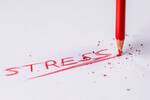
06 Dec Anger and Emotional Tumult Studied as Stroke Triggers
MedicalResearch.com Interview with:

Dr. Smyth
Professor Andrew Smyth MB, BCh, BAO, MMedSc, MRCPI, PhD
Professor of Clinical Epidemiology
NUI Galway
Director of the HRB-Clinical Research Facility Galway
Consultant Nephrologist at Galway University Hospitals
MedicalResearch.com: What is the background for this study?
Response: We know that there are multiple medium to long-term risk factors for stroke, as people with conditions such as hypertension (high blood pressure) or diabetes mellitus (high blood glucose levels) and those with risk factors (such as smoking, obesity, poor diet quality and others) are at increased risk of stroke. However, we still find it difficult to predict who will have a stroke.
We were interested in exploring if short-term exposures to anger or emotional upset or a period of heavy physical exertion might lead to, or ‘trigger’ a stroke. We looked at this previously for myocardial infarction (heart attack) in a study called INTERHEART. Some smaller studies have looked at this before, with less people experiencing a stroke and often confined to one country or geographical region. Here, in INTERSTROKE, we included over 13,000 people who had a stroke and asked about the one hour period before the onset of the stroke and also about the same period on the day before.
MedicalResearch.com: What are the main findings?
Response: We found that almost one in eleven people had experienced anger or emotional upset in the one hour before the onset of their stroke – these people were more likely to be younger males and, on average, had higher levels of education, higher body mass index, higher baseline levels of stress and they were more likely to have a previous history of diabetes, hypertension or cardiovascular disease. Overall, we found an increase of 37% in the risk of all stroke, a 22% increase in the risk of an ischemic stroke (caused by a clot) and a 100% increase in the risk of an intracerebral hemorrhage (bleeding from a blood vessel). The increase was largest for those without a history of depression and in those with lowest levels of education.
We also found that one in twenty people had engaged in heavy physical exertion in the one hour before the onset of their stroke – these people were more likely to be younger males and, on average, more likely to be current smokers, to have higher blood pressure, higher levels of baseline physical activity and were least likely to have diabetes. Overall, we found no increase in the risk of all stroke, but a 62% increase in the risk of an intracerebral hemorrhage (bleeding from a blood vessesl).
MedicalResearch.com: What should readers take away from your report?
Response: We found that exposure to anger or emotional upset or engagement in heavy physical exertion may increase the risk of stroke. We believe that these exposures may lead to a response in the body with increases in heart rate, increases in blood pressure and changes in the flow of blood through blood vessels in the brain. These short-term or sudden changes may explain why we found these short-term increases in the risk of stroke. Whilst we cannot eliminate our exposure to anger or emotional upset, we suggest that everyone minimise their and to develop strategies to reduce the reaction of the body to these stressful experiences. For some, this may include breathing exercises; for others it may include meditation, mindfulness, or going for a walk to get some fresh air. What’s most important is that everyone has a strategy that works for themselves.
We continue to advocate for the benefits of regular exercise to maximise health and reduce the risk of cardiovascular disease. We recommend that individuals continue to exercise regularly and for those that wish to increase their level of activity, the best strategy is to increase the intensity or duration of exercise gradually, rather than extreme changes.
No disclosures
Citation:
Andrew Smyth, Martin O’Donnell, Graeme J Hankey, Sumathy Rangarajan, Patricio Lopez-Jaramillo, Denis Xavier, Hongye Zhang, Michelle Canavan, Albertino Damasceno, Peter Langhorne, Alvaro Avezum, Nana Pogosova, Aytekin Oguz, Salim Yusuf. Anger or emotional upset and heavy physical exertion as triggers of stroke: the INTERSTROKE study. European Heart Journal, 2021; DOI: 10.1093/eurheartj/ehab738
JOIN OUR EMAIL LIST
[mailpoet_form id="5"]We respect your privacy and will never share your details.
[last-modified]
The information on MedicalResearch.com is provided for educational purposes only, and is in no way intended to diagnose, cure, or treat any medical or other condition. Always seek the advice of your physician or other qualified health and ask your doctor any questions you may have regarding a medical condition. In addition to all other limitations and disclaimers in this agreement, service provider and its third party providers disclaim any liability or loss in connection with the content provided on this website.
Last Updated on December 6, 2021 by Marie Benz MD FAAD
